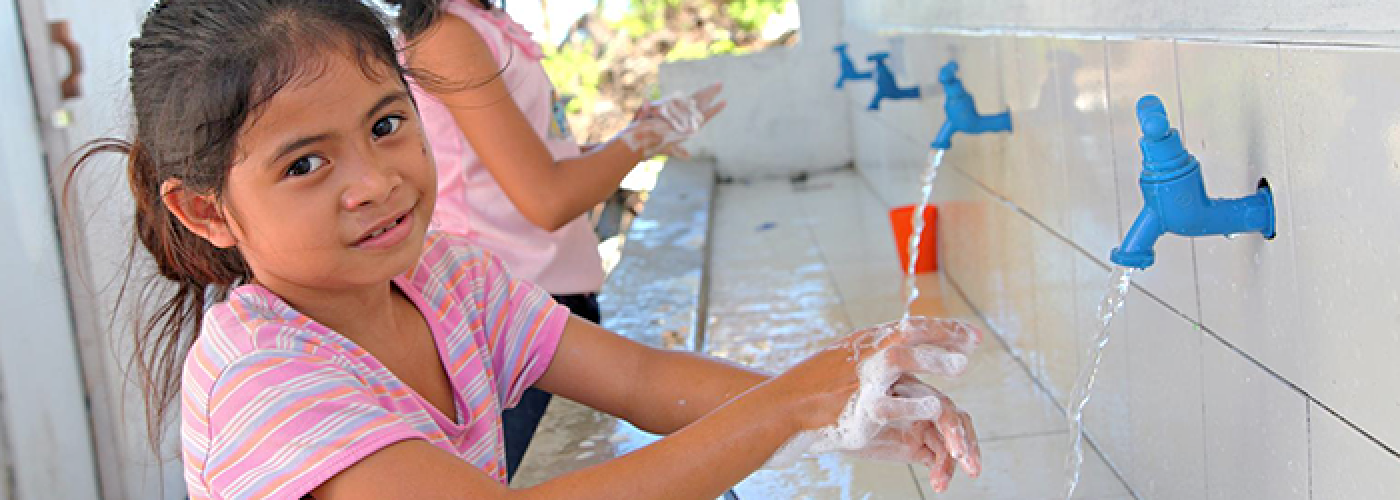There’s nothing more basic to our wellbeing than safe water and sanitation. Without access to these necessities, child poverty flourishes, and with it the child-mortality rate, disease and suffering. It doesn’t need to be this way; water- and sanitation-related ailments are preventable, and that’s why UNICEF believes clean water and sanitation are the highest priority in developing or impoverished areas.
Since 1990, UNICEF and its donors have helped bring clean water and sanitation to more than two billion people worldwide. But it’s more than this; UNICEF has helped teach children the importance of good hygiene, such as hand washing, showing the connection between a healthy body and a happy child.
But while we’ve made a big difference to the lives of children across the globe, there’s still much more to do. In spite of our efforts, 700 million people still lack safe drinking water, and more than one-third of the entire world population, about 2.5 billion people, lack adequate sanitation. For the children living in these conditions, poverty and disease is rampant.
For the sake of these kids, we need to do better.
Program areas:
- Safe water supply
- Water, sanitation and hygiene (WASH) in schools and early childhood development centres and in humanitarian situations.

